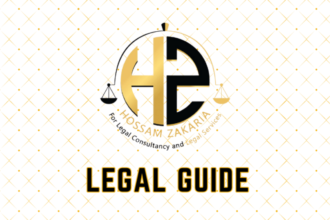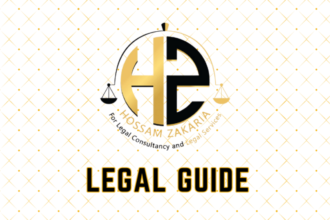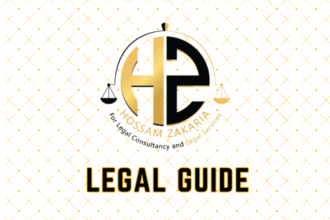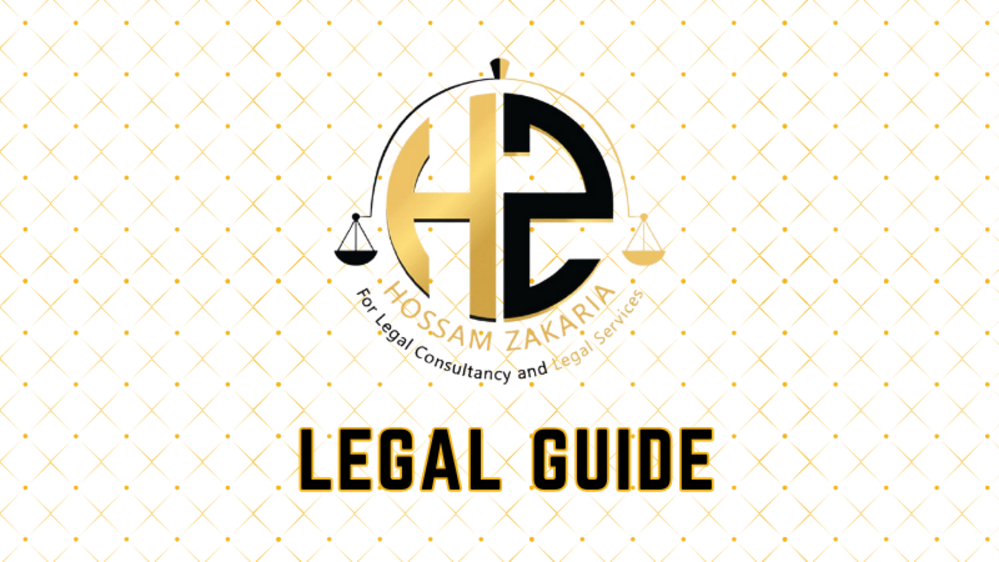Introduction
The aviation sector stands as a cornerstone for Qatar’s economic growth and regional connectivity, reflecting both the country’s ambition and its strategic location in the Gulf. Over recent years, Qatar has implemented significant reforms in its aviation legal framework to enhance compliance, safety, and international integration—developments that are highly pertinent for UAE-based businesses, legal practitioners, and sector professionals. As we move into 2025, an in-depth understanding of Qatar’s evolving aviation law becomes crucial for organizations with cross-border operations or ambitions, especially considering the rapid pace of legal updates and the increasing scrutiny of regulatory compliance across GCC jurisdictions.
This expert guide is tailored for executives, legal advisors, HR managers, and compliance teams operating in or with Qatar’s aviation industry. Drawing on authoritative sources such as the Qatar Civil Aviation Authority, regional treaties, and comparative insights from UAE legislative advancements—including guidelines from the UAE Ministry of Justice and Federal Laws—this article explores the nuances of Qatari aviation legislation, highlights recent changes, and delivers actionable guidance on risk management and compliance strategies for 2025 and beyond.
Table of Contents
- Overview of Aviation Law in Qatar
- Key Regulatory Framework and Institutions
- Recent Updates and 2025 Legal Changes
- Detailed Breakdown of Core Legal Provisions
- Compliance Requirements and Enforcement
- Comparative Analysis Qatar and UAE Aviation Legislation
- Case Studies and Practical Implications
- Risks of Non-Compliance and Best Practices
- Conclusion Forward Strategies for UAE Stakeholders
Overview of Aviation Law in Qatar
Qatar’s aviation sector is governed primarily by Law No. 15 of 2002 – Civil Aviation Law, along with its subsequent amendments and implementing regulations. The legislation establishes the fundamental principles governing civil aviation activities, including aircraft registration, airspace management, operator licensing, safety standards, and liability frameworks. As a signatory to key international conventions, Qatar’s legal structure is harmonized with leading global standards while reflecting unique national priorities.
Strategic Importance for UAE Businesses
For UAE enterprises with interests in Qatar or regional aviation more broadly, understanding this legal environment is essential for mitigating risks, ensuring contract validity, and meeting operational standards—especially as the GCC moves towards greater regulatory harmonization post-2025. Legal changes in Qatar may also signal trends that could influence future UAE federal decree updates or bilateral air agreements.
Key Regulatory Framework and Institutions
The principal regulator in Qatar is the Qatar Civil Aviation Authority (QCAA), which oversees licensing, certification, enforcement, and policy implementation. Its powers derive from national law and various cabinet resolutions, notably the Amiri Decree No. 63 of 2001.
Primary Regulations and Their Scope
| Regulation / Law | Main Area of Application |
|---|---|
| Law No. 15 of 2002 | Comprehensive civil aviation governance |
| Ministerial Decree No. 70 of 2006 | Aircraft registration, operator licensing |
| QCAA Safety Directives (2023-2025) | Airworthiness, flight operations, maintenance standards |
| Qatar Penal Code Special Provisions | Offenses related to aviation (e.g., endangerment, interference) |
| Bilateral Air Services Agreements | International airspace rights, slot allocations |
International Commitments
Qatar is a party to several international conventions, including the Chicago Convention (1944), Montreal Convention (1999) (regarding liability), and ICAO standards. These commitments require regular updates to domestic law to maintain alignment with global best practices, an area where UAE and Qatar frequently cooperate or benchmark against each other.
Recent Updates and 2025 Legal Changes
In anticipation of the 2022 FIFA World Cup and Qatar’s increasing role as a regional transit hub, legislative changes in 2023–2025 have aimed to modernize the regulatory framework. Notable updates include enhanced safety protocols, digital transformation mandates, stricter licensing conditions, and reinforced data protection requirements for passenger and cargo services.
Summary of Legal Updates
| Update | Effective Date | Key Impact |
|---|---|---|
| Amendment to Law No. 15 of 2002 (2023) | Q1 2024 | Tighter operator regulations, higher licensing standards |
| Digital Records/Passenger Data Directive | Q4 2024 | Mandatory digitization and secure storage of flight/passenger data |
| Expanded Civil Aviation Penalty Regime | Q1 2025 | Broader enforcement and increased penalties for breaches |
| Environmental Standards for Aircraft | Q2 2025 | Adoption of new emission controls and reporting obligations |
Key Considerations for UAE-Based Organizations
These updates necessitate early compliance planning for UAE airlines operating in Qatar, ground service providers, and business aviation stakeholders. Proactive adjustment of operational protocols—especially around digital compliance and environmental obligations—will be vital for legal continuity and competitive advantage.
Detailed Breakdown of Core Legal Provisions
Aircraft Registration and Operator Licensing
Qatari law requires all civil aircraft operating in its airspace to be registered with the QCAA, with strict eligibility and documentation standards. The licensing regime is multi-layered, including operational certifications, safety audits, and periodic renewals, all overseen by the QCAA Certification Board.
Key Changes for 2025
- Tighter Ownership Disclosure: Stricter requirements on the transparency of ultimate beneficial owners of aircraft and operators.
- Increased Proof of Technical Competence: Enhanced training obligations for both ground and flight staff, with cross-border recognition of UAE training programs (where approved).
- Heightened Continuing Airworthiness Oversight: New QCAA inspections and more frequent checks, especially for foreign-registered aircraft operated by UAE entities.
Safety Standards and Digital Compliance
Recent directives enforce a higher standard of maintenance and operational transparency through mandatory digital recording of all critical flight data, maintenance logs, and crew certifications. This aligns with both ICAO mandates and recent standards set by the UAE General Civil Aviation Authority (GCAA).
| Provision | Pre-2023 Law | 2025 Update |
|---|---|---|
| Data Management | Paper-based, some voluntary digitization | Mandatory digital records, QCAA auditing rights |
| Crew Training | Periodic, manual reporting | Real-time digital certification updates, cross-border validation |
| Operational Approvals | Annual renewal cycle | Continuous compliance monitoring, increased reporting obligation |
Passenger Rights and Liability
Qatar has adopted the Montreal Convention’s regimes for passenger rights, lost baggage, and liability caps, applying them through national implementing regulations. A significant 2025 change includes extended protection for passengers regarding flight cancellations and delays, greater accessibility for persons with reduced mobility, and stricter compensation mechanisms when compared to legacy systems.
Compliance Requirements and Enforcement
Key Areas of Legal Exposure
- Licensing & Operations: Penalties include operational suspensions and heavy fines for non-compliance with registration and licensing provisions.
- Data Obligations: Failure to comply with new digital data and cybersecurity mandates can lead to criminal liability for directors and loss of operational approvals.
- Environmental Compliance: Non-conformity with emission and sustainability obligations exposes organizations to fines and potential bans on aircraft.
- Passenger Rights: Delayed compensation or mishandling passenger claims can result in mandated compensation and reputational loss.
Enforcement Mechanisms
The QCAA has increased its inspection capacity, with more surprise audits, digital monitoring, and the establishment of a compliance taskforce for 2025. Appeals mechanisms exist (typically requiring timely response and evidence submission), but non-compliance is more likely to result in immediate operational sanctions.
Suggested Visual: Aviation Compliance Checklist 2025
- Operator licensing validity and renewal dates
- Aircraft registration status
- Digital data compliance score (automated reporting)
- Crew training and certification logs
- Environmental audit status
- Passenger claim resolution system
Comparative Analysis Qatar and UAE Aviation Legislation
As regional neighbors and frequent collaborators, the UAE and Qatar share certain harmonized standards, yet important distinctions can impact cross-border operations. The comparison below highlights how recent changes affect key areas of compliance for UAE entities operating in Qatar.
| Legal Area | Qatar Law (2025) | UAE Law (2025) | Practical Consultancy Insight |
|---|---|---|---|
| Aircraft Registration | Mandatory QCAA registry, strict disclosure | GCAA registry, with flexible UAE-free zone options | Check reciprocal recognition for UAE-registered aircraft in Qatar |
| Operator Licensing | Annual and technical audits | Annual, with additional fit-for-commerce checks | Ensure ongoing training equivalency between jurisdictions |
| Digital Data Management | Mandatory, with advanced cybersecurity standards | Mandatory (since 2022), phased cyber audits | Align IT systems to comply with both QCAA and GCAA standards |
| Passenger Rights | Montreal Convention plus 2025 QCAA enhancements | Montreal Convention, with local enforcement | Anticipate higher passenger compensation liabilities in Qatar |
| Environmental Regulation | Stricter emission reporting and penalties | Phased, with grace periods to 2026 | UAE operators must be prepared for immediate compliance in Qatar |
Suggested Visual: Penalty Comparison Chart
Consider a chart comparing fines, sanctions, and suspension periods in both jurisdictions for various breaches (licensing, safety, data, environmental non-compliance).
Case Studies and Practical Implications
Case Study 1: UAE Airline Expanding into Qatar
A leading UAE carrier sought to expand service routes to Doha. The QCAA’s 2025 digital compliance audit revealed that crew certification logs were only partially digitized—acceptable in the UAE, but non-compliant under QCAA’s real-time data update rules. The airline had to invest in new IT integration, retrain staff, and endure a three-month delay in slot allocation before meeting Qatar’s standards.
Practical Insight
Advance digital harmonization of records and staff upskilling are necessary for seamless cross-border expansion. Legal teams should audit internal compliance gaps before entering new markets.
Case Study 2: Business Jet Operator and Environmental Compliance
A business jet operator headquartered in Abu Dhabi faced unexpected QCAA penalties in 2025 due to late submission of mandatory emission reports. Under new Qatari law, the operator risked suspension for repeat offenses. By contrast, the UAE granted an extended transition period, highlighting the need for robust, parallel compliance processes across both jurisdictions.
Practical Insight
Designing compliance systems that accommodate both the strictest regional requirements and phased reporting allowances elsewhere is essential for risk mitigation.
Risks of Non-Compliance and Best Practices
Risks
- Operational disruptions due to enforcement actions (e.g., groundings, suspensions)
- Financial penalties, which can now exceed QAR 500,000 for data and environmental breaches
- Civil and criminal liability exposure for directors and management
- Loss of commercial reputation and negative impact on cross-border operation rights
Best Practices for 2025
- Early Legal Audit: Commission a thorough legal-review focusing on registration, digital compliance, and passenger rights systems before any Qatar expansion.
- Integrated Digital Systems: Implement IT platforms capable of real-time data synchronization, with audit trails for both QCAA and GCAA regulations.
- Cross-Train Compliance Teams: Regularly update training regimes to account for differences and convergence in UAE and Qatar law.
- Environmental Reporting Automation: Deploy automated tools to ensure continuous, error-free reporting and reduce human intervention risk.
- Crisis Management Planning: Prepare for regulatory inspections, develop rapid response protocols, and establish direct communication lines with both QCAA and UAE GCAA authorities.
Conclusion Forward Strategies for UAE Stakeholders
The ongoing transformation of Qatari aviation law sets both challenges and opportunities for UAE-linked businesses. By 2025, the regulatory landscape reflects a sophisticated set of requirements around safety, digital compliance, environmental stewardship, and passenger protection. Successful navigation depends on proactive legal compliance, strategic investment in systems integration, and forging robust relations with key regulators.
For UAE stakeholders, anticipating stronger regulatory convergence in the GCC underscores the importance of future-proofing compliance programs, leveraging legal expertise, and maintaining agile business strategies. Partnering with legal advisors who operate across both UAE and Qatari jurisdictions is now indispensable for sustaining operation, mitigating risk, and capitalizing on new opportunities in the burgeoning regional aviation market.
Forward-Looking Best Practices for 2025 and Beyond
- Regularly monitor official updates via the Qatar Government Portal, UAE Ministry of Justice, and General Civil Aviation Authority.
- Conduct cross-jurisdictional compliance workshops for legal and operations teams.
- Maintain active engagement and open communication with QCAA and UAE GCAA to pre-empt regulatory shifts.



